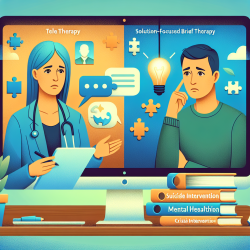In the demanding world of healthcare and scientific research, burnout is a prevalent issue that affects many professionals. A recent cross-sectional study conducted in Japan sheds light on the factors that can help mitigate burnout among early career physician-scientists. This study offers valuable insights that can be applied to improve the skills and well-being of practitioners across various fields.
The Study at a Glance
The research, titled "Workplace resources, mentorship, and burnout in early career physician-scientists: a cross sectional study in Japan", investigates the impact of workplace resources and mentorship on psychological burnout. Conducted among 408 physician-researchers, the study reveals key factors that contribute to lower levels of burnout.
Key Findings
- Mentorship: The presence of a mentor was associated with significantly lower levels of personal, work-related, and patient-related burnout. Mentors provide guidance, support, and can help navigate the complexities of balancing clinical responsibilities with research duties.
- Workplace Resources: Access to well-being consultation services was linked to reduced personal and work-related burnout. These services offer support on career development, mental health, harassment issues, and more.
- Role Models: Having a role model who maintains a good work-life balance was associated with lower patient-related burnout. Role models exemplify successful integration of professional and personal life.
Practical Applications for Practitioners
The findings from this study highlight several actionable strategies for practitioners aiming to enhance their skills and reduce burnout:
- Seek Mentorship: Actively pursue mentorship opportunities within your organization or through professional networks. A mentor can provide invaluable advice and support throughout your career.
- Utilize Workplace Resources: Take advantage of available well-being consultation services. These resources can help address stressors related to career development and mental health.
- Identify Role Models: Look for individuals who exemplify a healthy work-life balance. Observing their strategies can inspire you to achieve similar equilibrium in your own life.
- Encourage Organizational Support: Advocate for policies that promote mentorship programs and enhance workplace resources. Such initiatives can foster a supportive environment conducive to professional growth.
The Road Ahead
This study underscores the importance of organizational support in mitigating burnout. By implementing these findings, practitioners can improve their resilience and effectiveness in both clinical and research settings. Moreover, further research into gender differences in burnout could provide additional insights into tailored interventions.
To read the original research paper, please follow this link: Workplace resources, mentorship, and burnout in early career physician-scientists: a cross sectional study in Japan.










